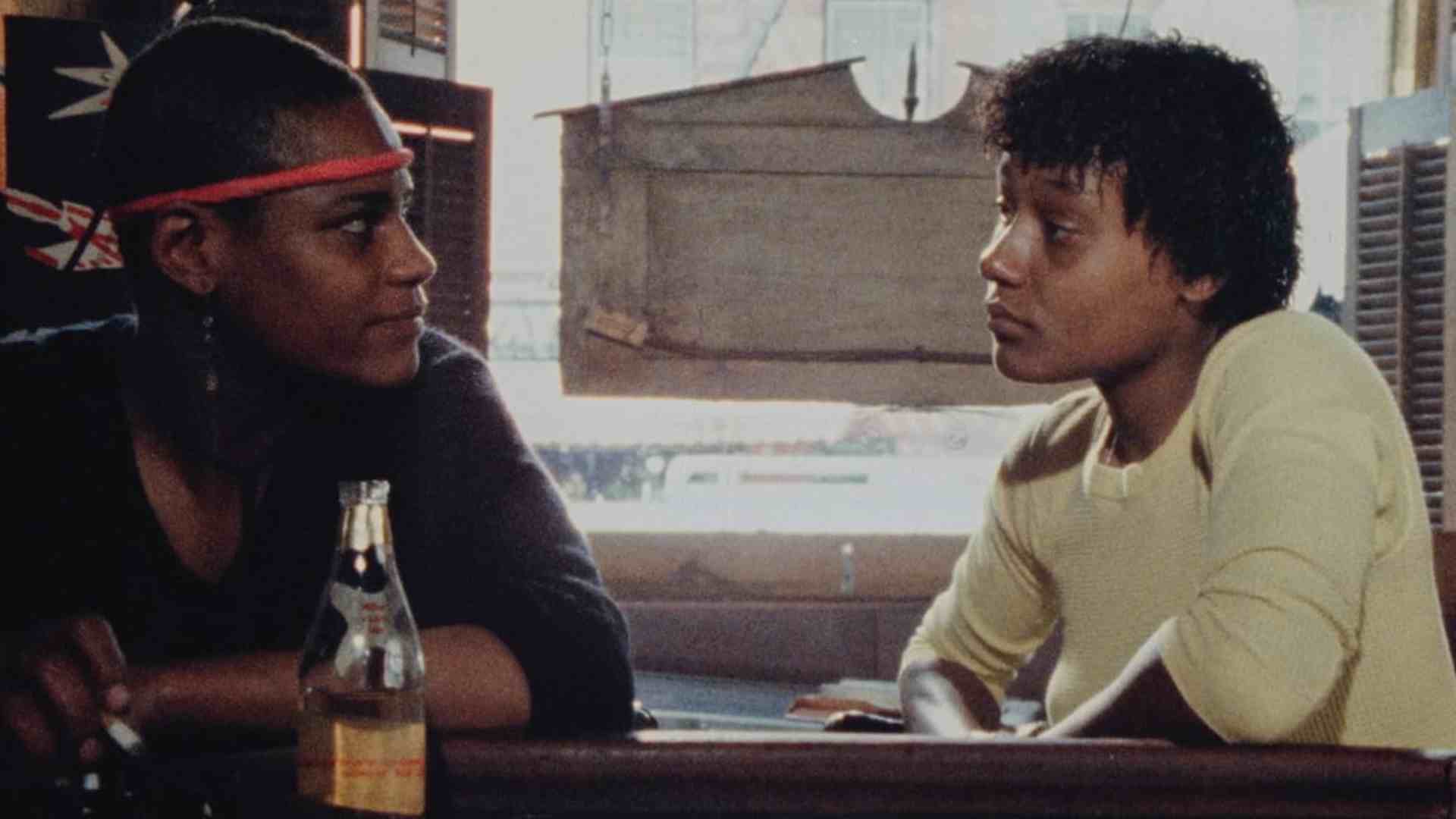In Cult Of Criterion, The A.V. Club highlights a new release from The Criterion Collection each month, examining the films entering an increasingly accessible film canon.
It’s not hard to make a movie with superficially punk aesthetics, either in front of the screen or in the DIY production, but rarely does the final film actually resemble something as grungy, live-wire, or politically furious as Born In Flames. By their nature, feature films are often relatively hemmed-in affairs compared to other art forms. They’re expensive, they require a dedicated team, they take a long time. These factors lead to compromises, business decisions, and regressions towards the mean, even among the lengthier efforts made by the avante-garde. So when you get something like the narrative debut from critic-turned-filmmaker Lizzie Borden, which shouts a radical and enduring message still firing up protestors and advocates more than 40 years later, it’s as striking as a conversation shouted between sets and shots at a lousy dive bar.
The theory-dense, loud-and-proud agitprop is a natural extension of Borden’s academic first film, the Criterion-included documentary Regrouping, which scatters the in-fighting and dissolution of a women’s collective into a diffuse atmospheric haze. The same committed ideals and loose form aim at a broader target in Born In Flames, but maintain their fuck-you feminism. Borden’s near-future fiction imagines the continued rebellion occurring in a post-revolution New York City, where the victorious, pseudo-socialist establishment has revealed itself as pathetically, treacherously neoliberal. Their political promises curdle like those of a Chicago mayor on the second day of his term.
Those resisting include Black women, gay women, mad-as-hell blue-collar women. They’re embodied specifically by two pirate radio hosts, Honey (Honey) and Isabel (Adele Bertei), and construction worker Adelaide Norris (Jean Satterfield). They’re guided, contentiously, by a movement old-head played by Black Panther lawyer Florynce Kennedy. Those who view themselves as already having won, including the editorial team for a party rag that includes filmmaker Kathryn Bigelow (who was one of Borden’s Regrouping collaborators), are white, well-off, and complacent. As the film flits between shaky styles—between concert-like footage of punk music performances, documentary-style shots of faux protests, and serious philosophical conversations about the usefulness of political violence—Born In Flames resembles nothing more than a raucous night out in the scene, where you could chance into a queer hook-up moments after having your eardrums blasted or your ethics tested. It’s an invigorating clash of possibilities, empowered by friction like static electricity.
Filmed over five years as the movements of the late ’70s were stamped out and/or corrupted by the conservatism of the ’80s, Born In Flames compresses a half-decade of frustration into a single evocative Polaroid. In our cyclical political landscape, though, it also serves as a relevant repudiation of girlboss feminism. The threat of settling, of selling out those who are a bit more oppressed than you, has remained an imminent one for those looking to shift the status quo. Borden allows her arguing cast of non-professionals to represent both these dangers and the response of true believers to those whose ideology falters. Every other scene in the non-chronological film is either flooded with the fracas of the Red Krayola track for which the film is named (which sound a little like Sparks free-associating about left-wing politics), the demonizing propaganda of the state, or disputes around tactics, approaches, and aims.
These latter debates resonate in the modern leftist environment, where tiffs between Democratic Socialists Of America and shouting matches around respectability dominate many progressive circles. Add in the continued move right of the entrenched Democrats—as California Governor Gavin Newsom gleefully demolishes homeless encampments, sitting Senators post milquetoast social media screeds, and former presidents eulogize eugenicists—and the only difference between Born In Flames’ imagined future and 2025 is that the film is actually listening to some Black women. Ours is still an America where childcare is restricted, abortion is criminalized, employment is bigoted, and mainstream media is compromised.
These activists address timeless problems with evergreen solutions. On a smaller and less historically provocative scale than its climactic ending image—the bombing of an antenna atop the World Trade Center—the women attack their issues with some of the always-relevant hallmarks of resistance: Community safety enforced by a grassroots alternative to law enforcement (a bunch of women on bicycles patrol for rapists) and information spread through underground indie media. Like the rest of the film, the familiarity of this cycle, the threats and responses, can feel discouraging. But Borden’s immersed in the movement enough to know that this isn’t the only appropriate reaction.
The question Born In Flames begins and leaves us with, is “What comes next?” The answer, for decades now, has been “More of the same.” It’s a depressing answer when understood as applying to a stagnant progressive movement, barely keeping pace against powerful rip currents. But when taken in the context of the rebels’ final statement, blasted wide through a hijacked news broadcast, this “constant struggle and change” becomes part of the deal. There’s an acceptance that the work is never done, and that’s valuable. Borden’s countercultural hope for the future relies on a conception of progress that shares a logic with the fertility following forest fires. You keep burning it down, so you can rebuild something better.




















![Rob Reiner's son booked for murder amid homicide investigation [Updated]](https://img.pastemagazine.com/wp-content/avuploads/2025/12/15131025/MixCollage-15-Dec-2025-01-10-PM-9121.jpg)




















